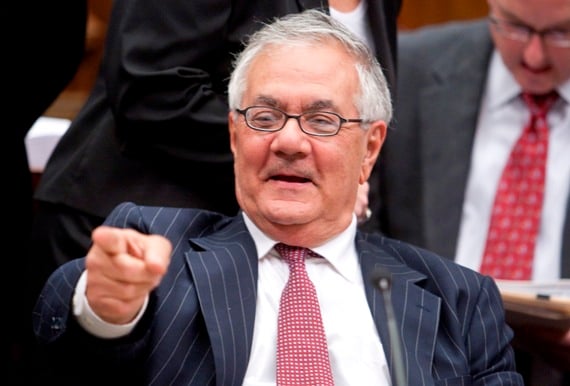Although it may be months before the Labor Department releases a revised fiduciary-duty proposal, political pressure on the issue continues to increase.
In a letter to Secretary of Labor Hilda Solis on Monday, 33 congressional Democrats admonished the agency about the cost-benefit analysis it is conducting on the rule, which would expand the definition of “fiduciary” for anyone providing investment advice to retirement plans.
The request for data issued by the Labor Department late last year indicates that the agency is seeking to limit investment education and information, according to the letter.
“Without evidence of a problem that would justify such restrictions, we are troubled by this apparent direction,” wrote the lawmakers, who included Rep. Barney Frank, D-Mass., ranking member of the House Financial Services Committee, and top Democrats on other committees.
The Labor Department first proposed an enhanced fiduciary-duty rule in October 2010, citing the need to update federal retirement law to improve the protection of millions of 401(k) and IRA investors from tainted advice. The rule was withdrawn in September 2011 after fierce protest from industry and bipartisan members of Congress, who said that it was too expansive. Lawmakers claimed the proposal would subject individual retirement accounts to fiduciary duty for the first time, substantially raising costs and risks for brokers, and potentially driving them out of the market — leaving workers and retirees nowhere to turn for advice.
The Labor Department has promised to re-propose the rule but has not indicated a timeline. Most observers expect that a new rule will not come out until
after the election, due to the controversy surrounding it.
One of the primary criticisms that opponents made was that the original rule lacked a sufficient cost-benefit-analysis justification.
But the Democrats who wrote to the Labor Department on Monday aren't satisfied with the regulatory-impact assessment that the agency is conducting for the re-proposal, calling the data request “unrealistic in scope and timing.”
The agency is seeking 10 years of information about investors, investments and recommendations regarding retirement plans and products. “Such a sweeping request seems impractical … different firms keep data in different ways for different periods, and generating 10-year data in the ways requested by the department is a difficult if not impossible task,” the lawmakers wrote.
A labor spokesman was not immediately available for comment. But in a June 20 letter to the leaders of the House Education and the Workforce Committee, Phyllis Borzi, assistant secretary of labor and head of the Employee Benefits Security Administration, said that the financial sector has not been forthcoming.
“While the department was disappointed not to receive many of the suggested data elements from industry sources, we have met with industry representatives and asked them to provide whatever information they had that would be useful to our efforts,” Ms. Borzi wrote.
The Securities Industry and Financial Markets Association declined to participate in the cost-benefit analysis.
“Ultimately, and after great effort, we determined that nearly any data we could provide to the department would disclose private, personal client information,” SIFMA spokesman Andrew DeSouza said in a statement. “Our members, however, have provided information to the department on an individual basis.”
The Capitol Hill Democrats also criticized the Labor Department for not working closely enough with the Securities and Exchange Commission on the fiduciary-duty issue. The Dodd-Frank financial reform law gives the SEC authority to promulgate a universal fiduciary-duty standard for retail investment advice. The SEC is formulating a data request for its own cost-benefit analysis before proceeding.
“This lack of coordination is particularly concerning because the SEC's project is driven by a statutory directive in the Dodd-Frank Act and is thus subject to clear Congressional guidelines, while the Department's is not,” the lawmakers wrote.
Speaking to a
June 18 conference of retirement plan managers in Washington, Ms. Borzi said that the Labor Department and the SEC will continue to pursue separate fiduciary-duty rules because they are governed by different statutes.
“I absolutely will not promise anybody there will be a single fiduciary standard, because that's impossible,” Ms. Borzi said. “Compliance with one of the standards won't put you out of compliance with the other standard. It doesn't mean a single standard; it does mean a compatible standard.”
This week's letter from Capitol Hill demonstrates that some lawmakers from the Obama administration's own party disagree.







